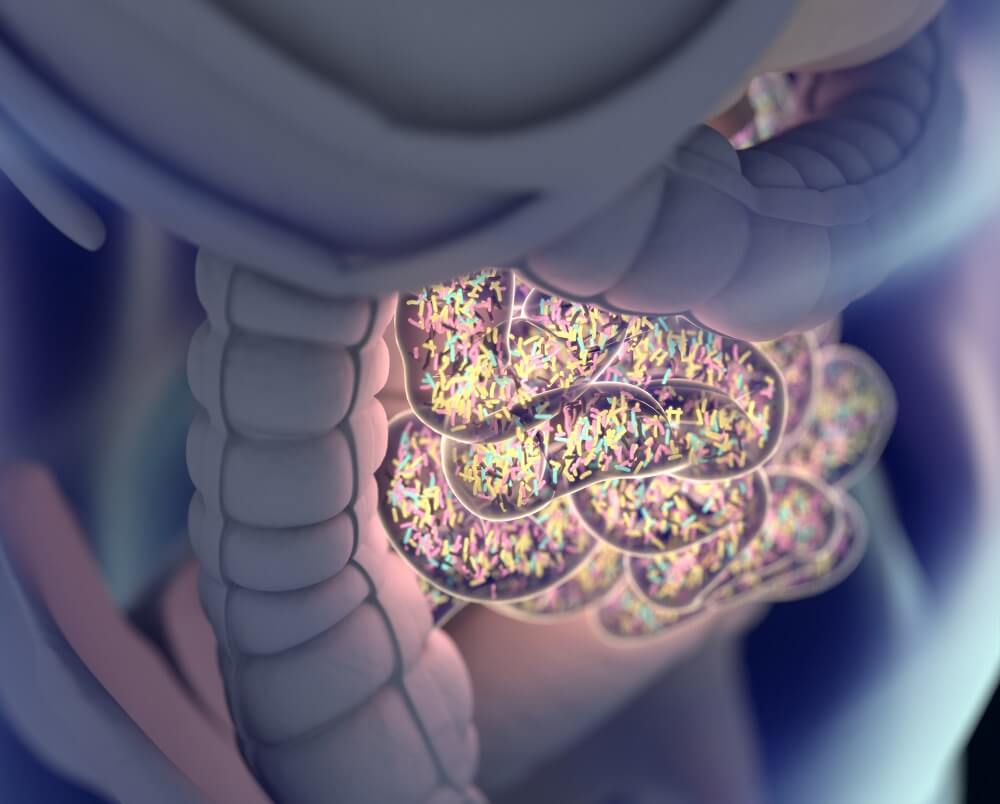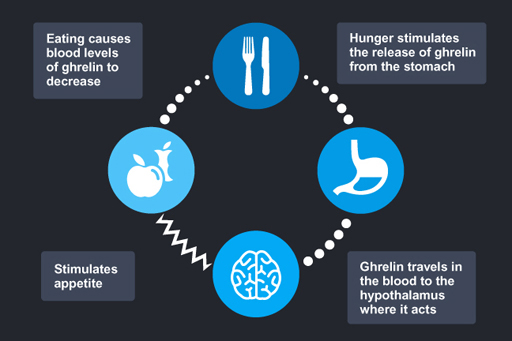
Hormones are chemical messengers that regulate processes in our body and are one factor in causing obesity. The hormones leptin, ghrelin, insulin, sex hormones and growth hormones all influence our appetite, metabolism, and body fat distribution. People who are obese have certain hormone levels that encourage abnormal metabolism and the accumulation of body fat.
A system of glands, known as the endocrine system, secretes hormones into our bloodstream. The endocrine system works with the nervous system and the immune system to help our body cope with different events and stresses. When your hormone levels are too high or too low, it can cause obesity. While on the other hand, obesity can cause changes in your hormones.
Today we are going to talk about three hormones that play a role in regulating your weight—insulin, leptin, and ghrelin.
Hormones Responsible for Weight Control
Insulin
Insulin is a chemical messenger that allows cells to absorb glucose, a sugar, from the blood. Insulin also assists in breaking down fats or proteins for energy.
The pancreas is an organ behind the stomach that is the main source of insulin in the body. Clusters of cells in the pancreas—called islets—produce insulin and determine the amount based on blood glucose levels in the body. The higher the level of glucose, the more insulin goes into production.
A delicate balance of insulin regulates blood sugar and many processes in the body. If insulin levels are too low or too high, it can start to cause symptoms. And if a state of low or high blood sugar continues, serious health problems might start to develop.
If one consumes a diet rich in simple carbohydrates and sugars, the body requires more insulin to control blood sugar. Insulin resistance is a condition where the pancreas has to produce more insulin to control blood sugar. Insulin is okay at low levels, but at high levels, it can impair fat metabolism—causing weight gain.
What to Do: Adopting a low carbohydrate lifestyle and regular exercise are essential for glucose regulating and maintaining a healthy weight and insulin levels.
Leptin
The hormone leptin is produced by fat cells and is secreted into our bloodstream. Leptin reduces a person's appetite by acting on specific centers of their brain to reduce their urge to eat. It also seems to control how the body manages its store of body fat. The primary design of leptin is to help the body maintain its weight.
Leptin amounts are directly connected to an individual’s amount of body fat. If the individual adds body fat, leptin levels will increase. If an individual lowers body fat percentages, the leptin will decrease as well.
Because leptin is produced by fat, leptin levels tend to be higher in people who are obese than in people of normal weight. However, despite having higher levels of this appetite-reducing hormone, people who are obese aren't as sensitive to the effects of leptin and, as a result, tend not to feel full during and after a meal.
Leptin is sometimes called the satiety hormone. It helps inhibit hunger and regulate energy balance, so the body does not trigger hunger responses when it does not need energy. However, when levels of the hormone fall, which happens when an individual loses weight, the lower levels can trigger huge increases in appetite and food cravings. This, in turn, can make weight loss more difficult.
What to do: Try to avoid sugary drinks and trans fats. Also engage in regular exercise and be sure to get enough sleep at night.
Ghrelin
Ghrelin is known as the hunger hormone and is produced by the stomach when you are hungry, telling your brain that you should eat. Ghrelin stimulates your appetite and thus can result in an increase of caloric intake and fat storage if not properly regulated.
 Ghrelin levels are at their highest right before a meal when you are hungry and at their lowest after a meal when you are full. However, for individuals that are overweight or obese, ghrelin levels only fall slightly after eating a meal. Therefore, their brain doesn't receive a strong signal to tell the body that it is full and to stop eating.
Ghrelin levels are at their highest right before a meal when you are hungry and at their lowest after a meal when you are full. However, for individuals that are overweight or obese, ghrelin levels only fall slightly after eating a meal. Therefore, their brain doesn't receive a strong signal to tell the body that it is full and to stop eating.
When an individual has too much ghrelin in their body, they are likely to be overweight or obese. On the contrary, low levels of ghrelin are often associated with weight loss. If you have high levels of ghrelin, weight loss surgery may be an option for you to help regulate this hormone. Bariatric Surgery lowers the amount of ghrelin in the body, helping individuals lose weight and maintain their weight loss long term.
What to do: Be sure to eat a diet that is low in sugar and simple carbs and high in protein—which promotes satiety. Also, weight loss surgery is a more serious approach to regulating your ghrelin levels.
Conclusion
Maintaining a healthy weight is a complex process that requires many different hormones and organs working together to maintain balance in the body. If any of the organs stop functioning properly it could throw the balance off. Insulin, leptin and ghrelin all play a role in the regulation of your weight and body fat distribution. By eating a balanced diet, one that particularly is low in sugar and simple carbs, you can help to regulate these hormones and assist in weight loss.
At Live Healthy MD, we offer medical weight loss services, as well as surgical, to help you achieve your weight loss goals. We assist in maintaining proper hormone function to aid in weight loss and optimal living. Attend one of our free seminars today to learn more about how to lose weight and live healthy!











